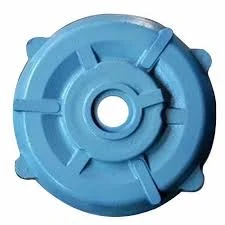Mobile:+86-311-808-126-83
Email:info@ydcastings.com
English
vertical impeller
Understanding Vertical Impellers Design, Function, and Applications
Vertical impellers play a crucial role in various applications, particularly in fluid dynamics within engineering and industrial systems. An impeller is a rotating component that transfers energy from a motor to the fluid, increasing the fluid's velocity and flow. Vertical impellers are specially designed to operate in vertical configurations, making them essential in applications where space constraints or specific fluid flow requirements exist.
The design of vertical impellers typically features blades that are oriented vertically, maximizing efficiency in fluid movement. This orientation allows for optimal interaction with the fluid, reducing cavitation and enhancing suction capabilities. The shape and angle of the blades are meticulously engineered to achieve desired flow patterns, ensuring that the movement of the fluid is smooth and consistent. Common designs include axial and mixed-flow impellers, each serving distinct purposes depending on the application.
One of the primary applications of vertical impellers is in wastewater treatment plants. In these settings, vertical impellers are utilized in processes like aeration to facilitate the mixing of air and wastewater, promoting the growth of microorganisms that break down pollutants. Their design ensures that the fluids are mixed efficiently, improving the treatment process's effectiveness. Additionally, they are employed in various industrial processes, including chemical mixing, food processing, and pharmaceutical manufacturing, where maintaining specific fluid properties is crucial.
vertical impeller

Another significant application is in cooling towers, where vertical impellers help circulate water
. The impellers facilitate the heat exchange process by ensuring that water flows uniformly through the cooling system, preventing hotspots and enhancing overall efficiency. This application is particularly important in industries that require precise temperature control, such as power generation and manufacturing.Moreover, vertical impellers are beneficial in agricultural applications, especially in irrigation systems. They assist in lifting water from lower levels to irrigate crops, thereby optimizing water usage. The design of these impellers can be tailored to handle varying viscosities and flow rates, making them versatile tools in both small-scale and large-scale agricultural systems.
The choice of materials for vertical impellers is also essential, as they must withstand various environmental conditions, including corrosive substances and varying temperatures. Common materials include stainless steel, plastic, and other alloys that provide durability and resistance to wear.
In conclusion, vertical impellers are vital in various engineering and industrial applications, characterized by their specific design and function. Their ability to efficiently move fluids makes them indispensable in wastewater treatment, cooling systems, and agricultural irrigation. As technology advances, the design and application of vertical impellers will continue to evolve, further enhancing their efficiency and expanding their use across different sectors.
-
Materials Used in Manufacturing Cap End Pipe FittingsNewsNov.24,2025
-
Material Properties of CF8M CastingNewsNov.24,2025
-
How to Inspect Pump Cap Ends for DamageNewsNov.21,2025
-
Backward Curved Impeller – Efficient Airflow Solutions for Industry | YD CastingsNewsNov.21,2025
-
Automobile Water Pump - Efficient, Quiet, Durable & ElectricNewsNov.21,2025
-
Impeller for Pumps – High-Efficiency, Durable, OEM-ReadyNewsNov.21,2025











